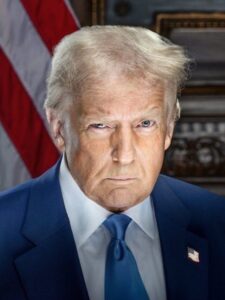The US House approves stablecoin legislation and forwards it to President Trump.
A bill to establish a regulatory framework for US-dollar-pegged cryptocurrency tokens, or stablecoins, was approved by the US House of Representatives on Thursday. President Donald Trump is anticipated to sign the bill into law.
For the digital asset industry, which has spent years advocating for federal legislation and heavily investing in last year’s elections to support pro-crypto candidates, the vote is a turning point.

Two further cryptocurrency legislations were also approved by House legislators and will now be sent to the Senate for review. One would forbid the US from launching a digital currency issued by a central bank, while the other would outline a regulatory framework for cryptocurrencies.
Notable bipartisan support was given to the stablecoin bill (the Genius Act) and the crypto market structure bill (the Clarity Act). Republicans and Democrats worked together to approve the stablecoin measure 308-122.
Crypto traders frequently utilize stablecoins, a kind of cryptocurrency created to maintain a steady value, typically a 1:1 dollar peg, to transfer money between tokens. Their use has risen quickly in recent years, and proponents suggest that they might be used to make payments instantly.
The stablecoin bill, if it becomes law, would mandate that tokens be backed by liquid assets, such US dollars and short-term Treasury bills, and that issuers reveal to the public the makeup of their reserves every month.
Summer Mersinger, the CEO of the Blockchain Association and a former official at the Commodity Futures Trading Commission, called Thursday’s votes a “defining moment in the evolution of US digital asset policy.”
The cryptocurrency industry has long urged lawmakers to enact laws establishing regulations for digital assets, claiming that a well-defined framework may facilitate the increased usage of stablecoins and other crypto tokens. The industry has attempted to portray the issue as bipartisan and has invested over $119 million in supporting pro-crypto congressional candidates in the previous year’s elections.A stablecoin measure was passed by the House of Representatives last year, but it was not taken up by the Senate, which at the time was controlled by Democrats.
After seeking cryptocurrency revenue throughout his presidential campaign, Trump has attempted to significantly alter US cryptocurrency regulations.
As Democrats have become increasingly irritated with Trump and his family members’ promotion of their cryptocurrency initiatives, tensions on Capitol Hill over Trump’s numerous crypto endeavors at one time threatened to derrail the digital asset sector’s hopes of legislation this year.
Trump’s cryptocurrency endeavors include World Liberty Financial, a cryptocurrency corporation that is partially owned by the president, and $TRUMP, a meme coin that was introduced in January.
According to the White House, Trump has no conflicts of interest and his assets are held in a trust that is run by his kids.
CLARITY ACT SENT TO SENATE
In addition to clarifying the Securities and Exchange Commission’s jurisdiction over the cryptocurrency industry—something that cryptocurrency entrepreneurs vigorously contested throughout the Biden administration—the Clarity Act, which passed 294–134, would significantly specify when a cryptocurrency is a security or a commodity.
Crypto businesses have suggested that the majority of tokens should be categorized as commodities rather than securities. This would allow platforms to offer tokens to their users more easily because they wouldn’t have to comply with a number of securities laws.
Prior to reaching Trump’s desk for final approval, the bill would have to pass the Senate.
The Clarity Act was vehemently opposed by several Democrats who claimed that by permitting softer-touch regulation, it may give away Trump’s cryptocurrency endeavors.
Disclaimer and Risk Warning
coinweck does not endorse or is responsible for any content, accuracy, quality, advertising, products, or other materials on this page. The image used in this article is for informational purposes only and is provided to us by a third party. coinweck should not be held responsible for image copyright issues. Contact us if you have any issues or concerns. Readers should do their research before taking any actions related to the company.









